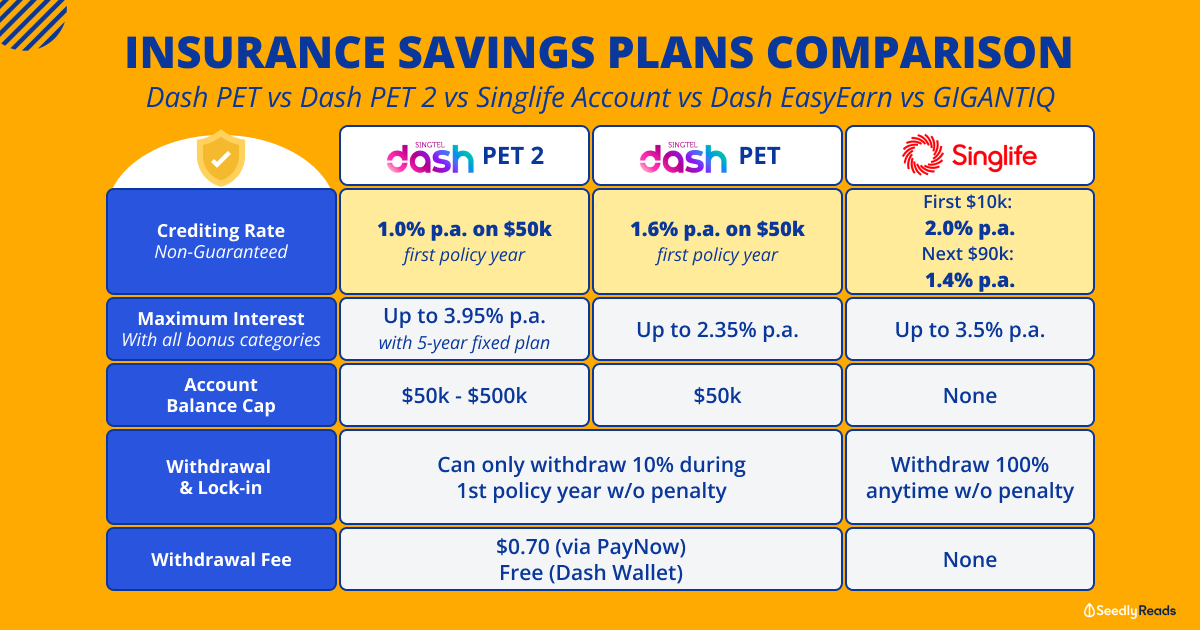Advertisement
Anonymous
Any recommendations for a personal accident insurance plan?
I don't have any idea as I' new to insurance so this will be very helpful.
5
Discussion (5)
Learn how to style your text
Nigel Tan
03 Dec 2020
Executive Senior Financial Planner at Great Eastern Life
Reply
Save
Elijah Lee
03 Dec 2020
Senior Financial Services Manager at Phillip Securities (Jurong East)
Hi anon,
Is there any reason that you are looking specifically at personal accident? Personal accident plans are generally meant to cover accidental death and dismemberment, but are more often used to cover TCM claims, outpatient A&E, etc.
If you are new to insurance, then you'll want to look at other types of coverage as a priority, such as hospitalization or critical illness coverage first. In order of importance, you can look at these:
Hospitalization plan. This covers any hospital bills and associated pre/post hospitalization costs. This would be from an integrated shield plan, with a rider to take care of the deductible/co-insurance. Depending on your budget, you can take a private hospital plan and downgrade later, or just go for Goverment A ward.
Critical Illness coverage. This provides a sum of money for you to cover your expenses and other out of pocket costs should you fall critically ill and are not able to work. Usually recommended to cover at least 5 years of expenses and an additional sum to cover out of pocket. This is usually via a limited payment life plan, or a term plan, depending on your budget/needs
Death coverage. This provides a lump sum of money should something happen to you. Not mandatory if you have no dependents or liabilities. Usually takes the form of a term plan. For the coverage amount, you could use a multiple such as 10 x of your current income, or calculate based on your current liabilities.
Personal Accident. For the minor stuff like TCM claims, etc. Typically people do not get this for the death coverage, but more for the incidental claims.
Generally, you should not have to spend more than 10% of your income on coverage.
You can work with an independent financial advisor who can provide multiple options and explain in detail what you will need to know about the types of insurance as well as the options from various insurers before you come to a decision, especially with respect to cost effectiveness as well as the minor differences between the plans.
You will want to be comfortable to share your financial details with your advisor as that will be important for the advisor to consider your current situation before suggesting suitable solutions.
Reply
Save
Hi there,
There are 4 things to insure yourself against as a guide:
1) Hospitalization
2) Critica...
Read 1 other comments with a Seedly account
You will also enjoy exclusive benefits and get access to members only features.
Sign up or login with an email here
Write your thoughts
Related Articles
Related Posts
Related Products

Manulife ReadyProtect Personal Accident
4.7
69 Reviews
ReadyProtect Signature
$1,000,000
ACCIDENTAL DEATH
$500 / week
TEMPORARY DISABILITY
Up to $10,000
MEDICAL BENEFITS
$1500
TCM & CHIROPRACTOR

Income PA Assurance
4.2
27 Reviews

Income PA Guard
4.1
17 Reviews
Related Posts
Advertisement







There are plenty of PA policies in the market.
Personally, I find the medical reimbursment portion the most useful in claiming outpatient bills which cannot be otherwise claimed from hospitalisation policies. Some of the unique things that can be claimed are like:
Traditional chinese medicine
Food poisoning
Dengue Fever
X ray & MRI scans
Dental for tooth crack
Chiropractor
Burns
Sprains & fractures
Do note that these can only be claimed due to accidents and/or above mentioned infectious diseases. Some PA policies may cover only some or all conditions depending on the policy contract.